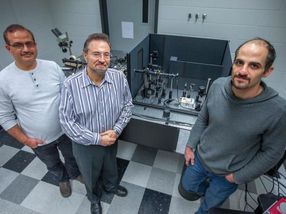Cancer And Chemotherapy Linked With Decreased Risk Of Alzheimer's Disease In Veterans
Most kinds of cancer are associated with a significantly decreased risk of Alzheimer's disease, according to a study of 3.5 million veterans reported at the Alzheimer's Association International Conference® 2013 (AAIC® 2013) in Boston. In addition, the study suggested that chemotherapy treatment for almost all of those cancers conferred an additional decrease in Alzheimer's risk.
Three other researchers presented results of epidemiologic studies that uncovered risk factors and/or possible therapies for Alzheimer's disease. The results indicated that:
- Metformin, a medication for type 2 diabetes, may be linked with lower Alzheimer's risk among type 2 diabetes patients compared with other therapies.
- Older age at retirement appears to be associated with reduced Alzheimer's risk.
- Socioeconomic disparities may account for the previously observed increased risk of Alzheimer's among African Americans.
"With these large-cohort studies and others, we are beginning to see the outlines of a broad picture of Alzheimer's disease risk and prevention factors," said Maria Carrillo, Ph.D., vice president of medical and scientific relations at the Alzheimer's Association.
"However, we need to know even more about what specific factors actually raise and lower risk for cognitive decline and Alzheimer's. To do that, we need longer-term studies in larger and more diverse populations, and more research funding is required to make that happen. Alzheimer's research would benefit from its own version of the Framingham Study, which has taught us so very much about preventable risk factors for heart disease and stroke," Carrillo said.
"With funding of research being a critical need for progress, the National Plan to Address Alzheimer's Disease must be fully implemented and the $100 million identified for Alzheimer's and dementia research this fiscal year needs to be funded," Carrillo concluded.
Cancer history and chemotherapy are associated with decreased risk of Alzheimer's
A growing body of evidence suggests a possible association of cancer with reduced risk for Alzheimer's disease; until now, whether the association differs between cancer types or is modified by cancer treatment is unknown.
Laura Frain, M.D., a geriatrician at VA Boston Healthcare System, and colleagues analyzed the health records of 3,499,378 veterans age 65 and older who were seen in the VA health care system between 1996 and 2011 and who were free of dementia at baseline. The objective was to evaluate the relationship between a history of 19 different cancers, cancer treatment and subsequent Alzheimer's disease.
Over a median follow-up of 5.65 years, 82,028 veterans were diagnosed with Alzheimer's. Twenty-four (24) percent of those veterans with Alzheimer's had a history of cancer, while 76 percent did not.
The researchers found that most types of cancer were associated with reduced Alzheimer's risk, ranging from 9 percent to 51 percent. Reduced risk was greatest among survivors of liver cancer (51 percent lower risk), cancer of the pancreas (44 percent), cancer of the esophagus (33 percent), myeloma (26 percent), lung cancer (25 percent) and leukemia (23 percent). Cancers that did not confer a reduced Alzheimer's risk, or were associated with an increased risk, included melanoma, prostate and colorectal cancers.
The researchers found no association between cancer history and reduced risk of any other typical age-related health outcome; in fact, cancer was associated with an increased risk of stroke, osteoarthritis, cataracts and macular degeneration. Most cancer survivors were also at increased risk for non-Alzheimer's dementia.
"Together, these findings indicate that the protective relationship between most cancers and Alzheimer's disease is not simply explained by increased mortality among cancer patients," said Frain. "More research is needed to determine if these results have therapeutic implications for Alzheimer's."
























































